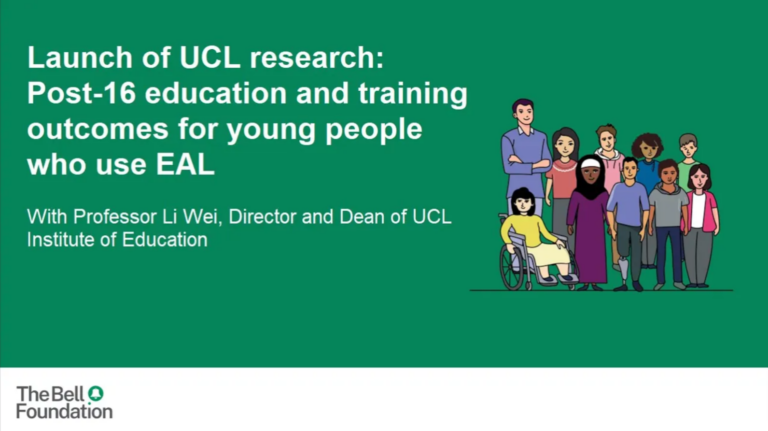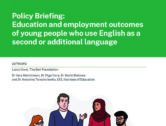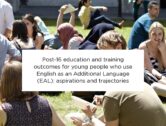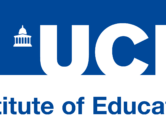Policy Briefing: Education and employment outcomes of young people who use English as a second or additional language
UCL Institute of Education (IoE), with The Bell Foundation, have published a policy briefing and research into the education and employment outcomes of young people who use English as a second or additional language.
About the research
UCL Institute of Education (IoE), with The Bell Foundation, have published a policy briefing and research into the education and employment outcomes of young people who use English as a second or additional language. The research was formed of a literature review of existing evidence and research (on which the policy briefing is based), and quantitative analysis of Next Steps data.
Key messages and findings include:
- The key finding from this analysis is that young people who speak languages other than English are more likely to stay in education and go to university post-16. However, they are also more likely to be not in education, employment or training at the age of 25 compared to the other groups.
- ESOL services in the UK have faced high demand and fragmentation of provision and funding, making it difficult for some young people to access the most appropriate provision.
- Currently there is no accurate data on the number of young people post-16 who need to learn English in the UK nor their proficiency in the language. Without this data, it is difficult to know, and therefore make provision for, the scale of need and type of support English as an Additional Language (EAL) speakers require.
Key Recommendations for the Government include:
- There is a need for a cross-government national English Language Strategy to co-ordinate all the different Government policies and funding streams.
- Data collection on the needs and levels of proficiency of ESOL learners must be a priority action in the English Language Strategy. Data collection, using a common framework, needs to take place at a local level in ESOL hubs, which could be at a local authority, combined authority or Strategic Migration Partnership level, the most appropriate to each locality.
- The DfE, in line with the devolved nations and other countries, should introduce a statutory requirement for schools in England to assess and record (for their internal monitoring purposes) EAL pupils’ level of proficiency in English. The assessment should use the DfE’s previously used five-point assessment scale, which was introduced temporarily in England for two years.
- The Government should introduce a mechanism for ensuring that an EAL marker is collected for students on the National Pupil Database (NPD) beyond compulsory education. In addition, that marker is transferred to Individualised Learner Records (ILRs), where appropriate, for the purposes of recording the education and employment outcomes of young people who speak languages other than English.
- The DfE should consider funding options which allow providers to offer free ESOL to all learners, including levels 1 and 2 with proper independent advice and guidance to learners on the need for and benefits of higher-level language skills.
- The DfE should consider funding models for ESOL transition programmes which are commensurate to the volume of study required for ESOL learners to achieve the language proficiency required to progress to level 3 qualifications.
- The DfE should test and conduct a robust evaluation of ESOL embedded with apprenticeships or T-levels to understand whether this improves accessibility, and education and employment outcomes for young people who speak languages other than English.
- The DfE should consider piloting ESOL transition programmes which are integrated with other transition programmes, such as employability and vocational study.




